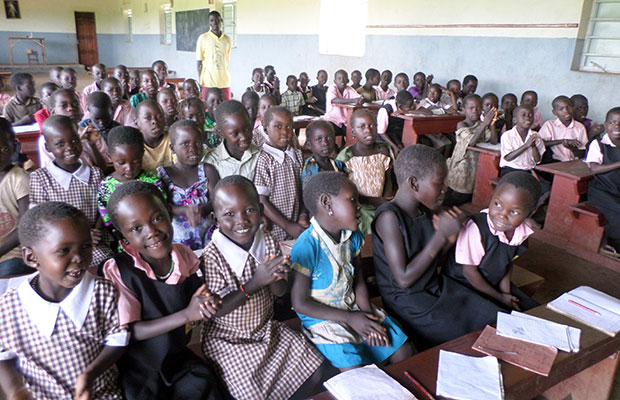
Building a Brighter Future for South Sudan
South Sudan suffers from pervasive social and cultural conditions that conspire to impede its future. Widespread poverty means that girls are routinely traded into marriage in exchange for livestock and other valuable goods. A lack of industry means that instead of attending school, boys are often kept home to assist parents who rely on subsistence farming to survive. And, parents who do wish to educate their children are often forced to sell one or more of them to pay the school fees of the others. The diminished status of children (and the education they are routinely denied) virtually guarantees a cycle of generational poverty that will forever impede the country’s economic maturation and progress. Something must be done.
“Children are the future of the country,” says Father Ferrington Rayen, Superior of Sudan and South Sudan. “But they require deliberate intervention in order to evolve beyond current ingrained beliefs and traditions. We envision a vibrant educational system — one that is accessible, affordable, and inclusive of girls — as the first, critically important step toward a new normal for South Sudan.”
For this reason, Fr. Ferrington and other members of the Salesian community operate the “One Hundred Village Schools for South Sudan” project. The purpose of the initiative is to teach foundational academic subjects, cultivate confidence through sports and the arts, instill good practical habits such as hygiene and basic health, and prepare youth for higher education and future leadership roles within their own communities and country.
Since the project’s launch in 2012, 59 schools have already been built. The remaining 41 are expected to be completed by 2017. On average, each school accommodates 300 to 350 students in first through eighth grade. All classes are operated in partnership with seven area Catholic dioceses, from which many of the teachers (sisters and lay volunteers) hail. In order to further encourage the development of dedicated, qualified teachers — especially among young women, who can most directly benefit from the economic opportunity afforded by the profession — the project also established a teachers’ training institute in the village of Yambio. Here, theoretical concepts augment the practical experience that teachers gain in the classrooms.
Already, the positive influence of the project is evident. In Rastigi and Manikakara, where two of the first village schools opened, students demonstrate an almost insatiable hunger for learning — despite their previous lack of education — that is helping them to quickly advance in their studies.
“The students who attend the village schools are noticeably different,” says Ariel Zarate, a Salesian Lay Missionary from the United States who is currently serving in Rastigi. “At home, at school and in the greater community they are more respectful, hardworking and intelligent than when they started. We are proud and encouraged by them and their progress — and because of this, we enjoy tremendous support from parents and other villagers who are generous with their time and resources to help us expand our efforts.”
“This young generation is already proving they can help South Sudan,” observes Fr. Ferrington. “They just need time, patience, and our commitment to their success.”
Our mission works to ensure a brighter future for youth despite difficult circumstances. What’s your mission?

